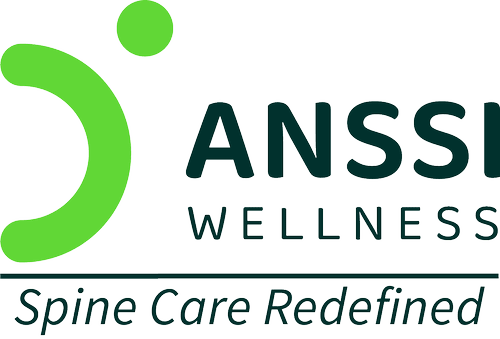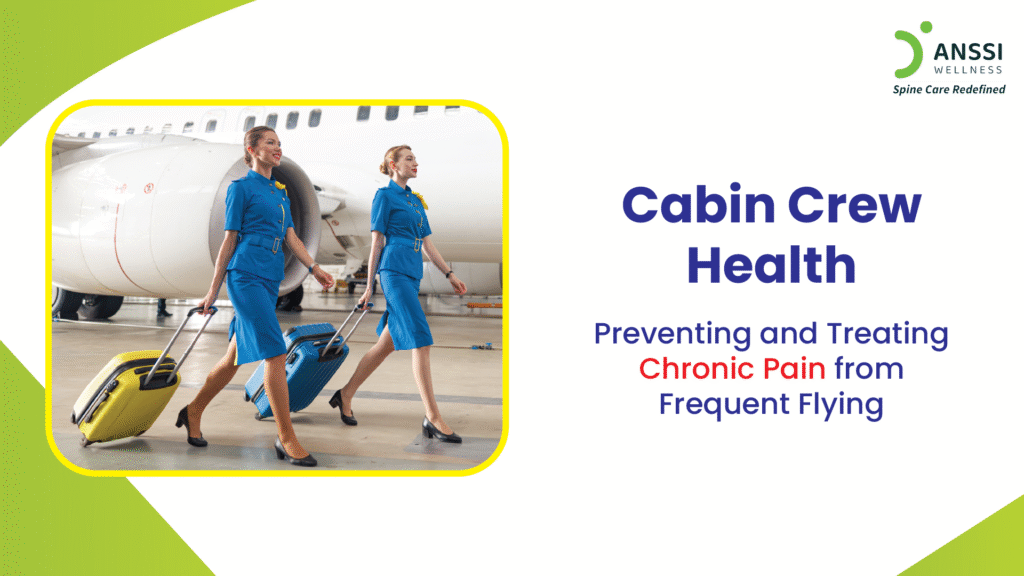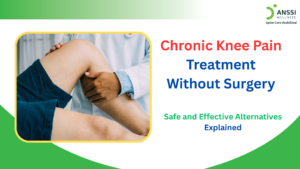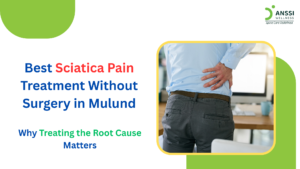Being part of a cabin crew is often seen as a glamorous and exciting career. You get to travel the world, meet new people, and experience different cultures. However, behind the charm of the job lies a physically demanding lifestyle. Long hours on your feet, lifting heavy luggage, working in confined spaces, and irregular schedules can take a toll on your body.
Many cabin crew members experience chronic health issues such as lower back pain, varicose veins, and joint stress. If left untreated, these conditions can worsen over time, affecting both work performance and overall quality of life. The good news is that with preventive care, lifestyle modifications, and modern non-surgical treatments, these problems can be effectively managed and often avoided altogether.
Common Health Issues Faced by Cabin Crew
The following are not just occupational hazards; they are warning signs that your body needs attention.
1. Lower Back Pain
Lower back pain is one of the most common complaints among cabin crew. Constant lifting of heavy carry-on bags, bending in awkward positions to reach overhead bins, and long periods of standing put continuous stress on the spine. Over time, this can lead to muscle strain, disc problems, or nerve compression.
2. Varicose Veins
Cabin crew often stand for hours at a time with limited opportunities to sit and rest. This can reduce blood circulation in the legs, leading to swelling, heaviness, and the formation of varicose veins; the enlarged, twisted veins that are both uncomfortable and unsightly.
3. Joint Stress and Stiffness
Narrow aisles, repetitive movements, and uneven weight distribution during in-flight duties can cause stress on joints, particularly in the knees, hips, and shoulders. Over time, this can result in joint pain, stiffness, and reduced mobility.
Preventive Lifestyle Modifications
Taking care of your health on and off duty can go a long way in preventing chronic pain.
- Practise Correct Posture: Stand tall, avoid slouching, and maintain proper spinal alignment while working. This reduces unnecessary strain on your back.
- Wear Supportive Footwear: Choose cushioned, supportive shoes that absorb shock and provide arch support.
- Use Compression Stockings: These improve circulation, reduce swelling, and lower the risk of varicose veins.
- Lift Luggage Safely: Bend your knees, keep the load close to your body, and avoid twisting your spine while lifting.
- Stay Hydrated: Dehydration can make muscles more prone to injury and worsen joint stiffness.
- Eat a Balanced Diet: Include anti-inflammatory foods like fruits, vegetables, nuts, and omega-3-rich fish to protect joint and muscle health.
Recommended Exercises
Even with a busy schedule, short and simple exercises can make a big difference:
- Hamstring and Calf Stretches: Helps improve flexibility and reduce leg stiffness after long flights.
- Lower Back Stretches: Gentle forward bends or lying knee-to-chest stretches can relieve tension in the lumbar spine.
- Core Strengthening Exercises: Planks, bridges, and abdominal exercises help support the spine and prevent back injuries.
- In-Flight Movements: March in place, flex and point your toes, or roll your ankles every hour to promote circulation and prevent swelling.
Advanced Non-Surgical Treatments
If chronic pain develops despite preventive measures, advanced non-invasive treatments can provide relief without the risks of surgery.
Non-Surgical Spinal Decompression Treatment
This USA-based technology is designed to relieve pressure on spinal discs and nerves, making it highly effective for lower back pain caused by disc bulges, herniations, or nerve compression. Non-surgical spinal decompression treatment is performed using precision-controlled equipment that gently stretches the spine, allowing herniated discs to heal naturally.
Physiotherapy and Rehabilitation
Targeted exercises, manual therapy, and posture correction can help restore mobility, strengthen supporting muscles, and prevent recurrence of pain.
Laser and Shockwave Therapy
These modern procedures accelerate healing, reduce inflammation, and relieve pain in affected muscles and joints.
The advantage of these treatments is that they are drug-free, injection-free, and surgery-free, allowing you to return to work quickly without long recovery periods.
About ANSSI:
ANSSI Wellness focuses on improving the quality of life for patients suffering from spinal issues, aiming to provide relief where other conventional treatments have failed. Through advanced non-surgical spinal decompression treatment, ANSSI is committed to helping patients avoid surgery and recover in a safe, effective, and compassionate environment.
Connect with ANSSI Wellness on LinkedIn, Instagram, and Facebook for expert guidance.




